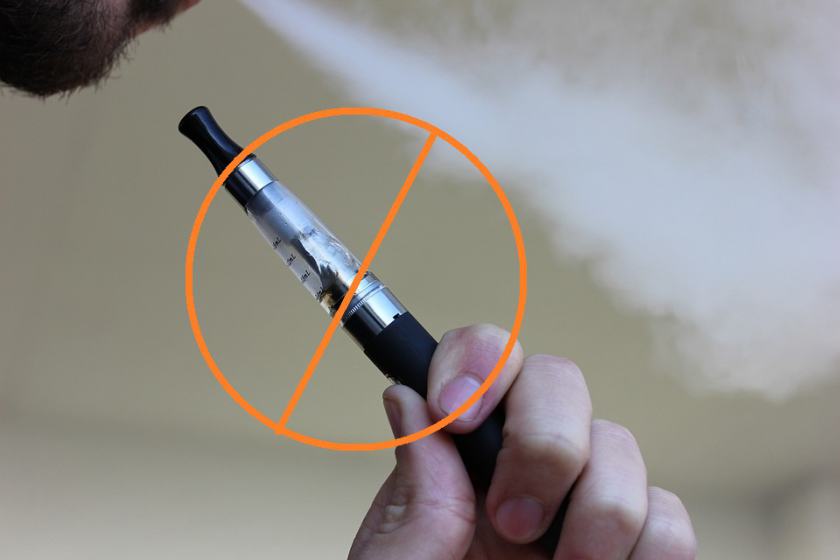This blog is excerpted from a Health article bApril 23, 2021.
When 23-year-old Meghan McTigue went to her doctor with bad lower-back pain, she wasn’t expecting him to ask if she vaped. When she told him she was an on-and-off vaper throughout her college years, he said that might be the reason for her current health issue. Sharing her story on TikTok, McTigue put it bluntly: “I have the back of a 50-year-old now thx to nicotine.”
In an interview with BuzzFeed, she revealed that she had tried several times to quit vaping.
“I’ve tried nicotine pouches to wean off of the inhalation aspect, lollipops to help with oral fixation, and signed up for one of the text services that sends you frequent reminders and tips on how to quit,” she said. “I had thrown out my own device probably two or three times, but ended up buying another weeks or months after.”
It took her recent health scare to make her get rid of her JUUL in December 2020.
“I had been having general lower back soreness probably since late high school, but in the past 2–3 months, I had fully thrown out my back to the point where it was really painful to stand/walk/bend over,” McTigue told BuzzFeed. “I knew that shouldn’t really be happening for someone my age who’s in relatively good physical health.”
When she went to see an orthopedic doctor who specializes in spine issues, she got both an MRI and X-ray. Looking at the MRI, the doctor noted that her three lower discs were slightly degenerated. “While my upper discs appeared white and thicker in the MRI, my three lower ones were almost black and significantly thinner,” McTigue said.
It was then that the doctor delivered the shocking news—this type of disc degeneration is usually seen in people over the age of 50. He then asked McTigue if she vaped.
“I told him I had for a couple of years, and he told me studies have found that nicotine can change the chemical makeup of your spinal disc cells so that they absorb less water and degenerate,” she said.
Adam Weitzman, MD, co-founder of the Los Angeles-area Goodlife Physical Medicine, in partnership with US Orthopedic Alliance, explains the chain of events. “When the cushioning discs of our low backs break down, it can actually lead to several different kinds of low back pain. And now we know there is a direct connection between nicotine and worsened disc degeneration,” he tells Health.
Dr. Weitzman says everything in our body undergoes a balanced breakdown/rebuild process—and the better that process works, the slower our bodies will degenerate as we age. “Think of it like a plane coming in for a nice gentle landing,” he says. “You can’t stop the inevitable descent toward the end, but you want it to go as smoothly as possible. Every time you take in nicotine, it interferes with the repair part. So if you are constantly filling your body with nicotine, then that process is unbalanced and the degenerative part takes over.” Then it’s only a matter of time before things start breaking down, Dr. Weitzman adds.
Charla Fischer, MD, an orthopedic surgeon at NYU Langone Health, goes into a little detail about the effects of nicotine on the spinal discs. “Nicotine causes blood vessels to get narrower,” she tells Health. “The lumbar discs already have a small amount of blood supply. If a patient smokes, then the small blood supply is reduced even more, preventing the healing of disc degeneration. So the thought is that smoking prevents the body from healing disc degeneration and this leads to sooner and more painful degeneration.”
If you’re a vaper, this probably all sounds pretty scary. But the good news is that when you ditch the e-cigarettes, your disc health will start to improve. “In addition to the numerous health benefits on your other body parts and systems, when you stop smoking or vaping (or even stop nicotine gum!) you restore that balance so your discs can again experience the benefits of the body’s intrinsic regenerative process,” Dr. Weitzman explains.
Other things that can cause disc degeneration are the aging process and excess weight (as seen in morbid obesity), Dr. Fisher adds.
McTigue told BuzzFeed that she’s started having physical therapy, and if that doesn’t work, the next step is to take a steroidal anti-inflammatory medicine. As a last resort, she could have surgery to remove the herniated part of her disc.
Lifestyle modifications can also make a huge improvement to your spinal health, Dr. Weitzman says. “The most effective, enduring, and cost-effective treatment is to support the body’s innate repair process by eliminating toxins that impair it; consuming nutrients that enable it; and modifying habits to provide more movement,” he says. And it’s never too late to start—even if you’re changing decades-long bad habits of little movement, poor posture, etc. “The best tools for improving your low back pain are in your hands right now, but you’ll never really be able to grasp them while you’re still holding on to something smokable,” Dr. Weitzman warns.
By sharing her experience, McTigue hopes to raise awareness of this less-known side effect of vaping. “I wanted to share my story so that people like me who were frequently vaping would know that our lungs weren’t the only things getting messed up by the vape—it could affect your spine and consequently your ability to do everyday things that most young people should be able to do,” she said.
Read the full Health article here: https://www.health.com/condition/back-pain/this-womans-back-pain-could-be-due-to-her-vaping-habit

